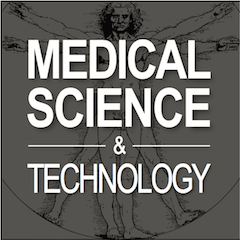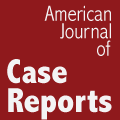Get your full text copy in PDF
Melisa Vigliano, Geraldine Labedz, Fernando Miguel Romero Moroni, Mercedes Rotelli, Diego Manuel Sifuentes Cock
Med Sci Tech 2017; 58:87-90
DOI: 10.12659/MST.905552
BACKGROUND:
Tinnitus is not only an ear symptom, but it is also recognized as a disorder at the brain level, affecting approximately 15% of the global adult population. Different diagnostic and therapeutic strategies are currently being developed to reduce and/or eliminate tinnitus symptoms, such as residual inhibition therapy (RIT), tinnitus retraining (TRT), and cognitive behavioral therapy (CBT). Narrow-band stimulation works accurately and is personalized depending on the problem of each patient. The goal of this study was to show that personalized stimulation with narrow-band sounds reduces the perception of tinnitus over other sounds stimuli.
MATERIAL AND METHODS:
A cross-sectional and analytical study was carried out with 93 patients enrolled at the Department of Otorhinolaryngology of Clínica Universitaria Reina Fabiola. There were 49 (53%) males and 44 (47%) females, and the mean age was 52.5±13.1 (SD) years. From these patients, we performed 149 tinnitus assessments: unilateral (N=36), bilateral (N=111) and cephalic localization tinnitus (N=2). These patients were audiologically studied with audiometry, logoaudiometry, acuphenometry, and narrow-band sound stimulation of tinnitus.
RESULTS:
We found that more than 80% of the patients showed complete (N=55 [37%]) or partial (N=68 [45%]) response, and 18% showed a negative (N=19 [13%]) or rebound (N=7 [5%]) tinnitus effect.
CONCLUSIONS:
We showed that specific narrow-band stimuli are effective as a personalized medicine strategy, opening the way to future behavioral therapies.
Keywords: Audiology, Otolaryngology, Quality of Life, Tinnitus



